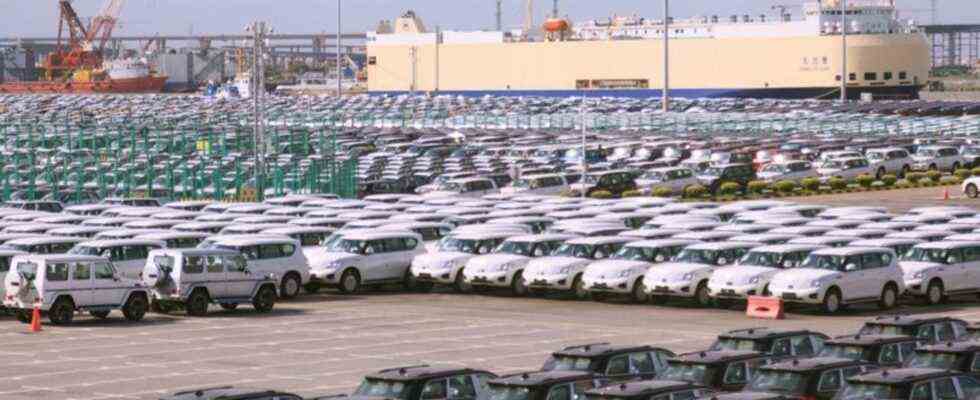vehicle construction
Study: Car sales in 2021 barely above the level of the previous year
New cars in China: car sales are also falling there. Photo: Wenjun Chen / dpa
© dpa-infocom GmbH
The sales figures for cars are not only falling in Germany, for example in China as well. There are reasons for this, which can be found in the semiconductor crisis.
According to a study by industry expert Stefan Bratzel, car sales in China, the USA and Europe this year are only three percent above the Corona-affected previous year.
Around 10 million more vehicles would have been sold worldwide without the semiconductor crisis, ”said the Center of Automotive Management (CAM) in Bergisch Gladbach on Tuesday. Sales will be “around 12 percent below the value of 2019” by the end of the year.
From January to September, new registrations in the seven most important automotive markets (China, USA, Europe, Japan, Brazil, Russia and India) are 45.6 million, which is 12.7 percent below those of the pre-Corona year 2019. The USA and China, with single-digit declines, is far better than Europe, where 24.4 percent fewer vehicles were sold than in 2019.
According to CAM, 16.6 million cars were sold in China by September, an increase of almost 25 percent over the previous year. “However, the international chip crisis has had a negative impact on the overall positive development, especially in the last few months.” It is similar in the USA, where new registrations were 11.8 million vehicles up to September, a good 13 percent above the previous year. In Europe, up to September there was an increase of 7 percent compared to the weak previous year. For the year as a whole, Bratzel expects 12 million registrations in Europe, 15.2 million in the USA and 20.3 million in China.
Production stoppages combined with high demand led to “record profits for many automobile manufacturers who install the scarce chips mainly in higher-priced vehicles and also do not have to grant any discounts,” explained Bratzel. “On the other hand, it is the automotive suppliers who suffer most, because they are rewarded according to the number of parts they produce”. They are particularly affected by production stops. Car manufacturers should make sure that important suppliers do not skid: “Otherwise, important links in the value chain could be lost in the next year and further production downtimes could be threatened.”

